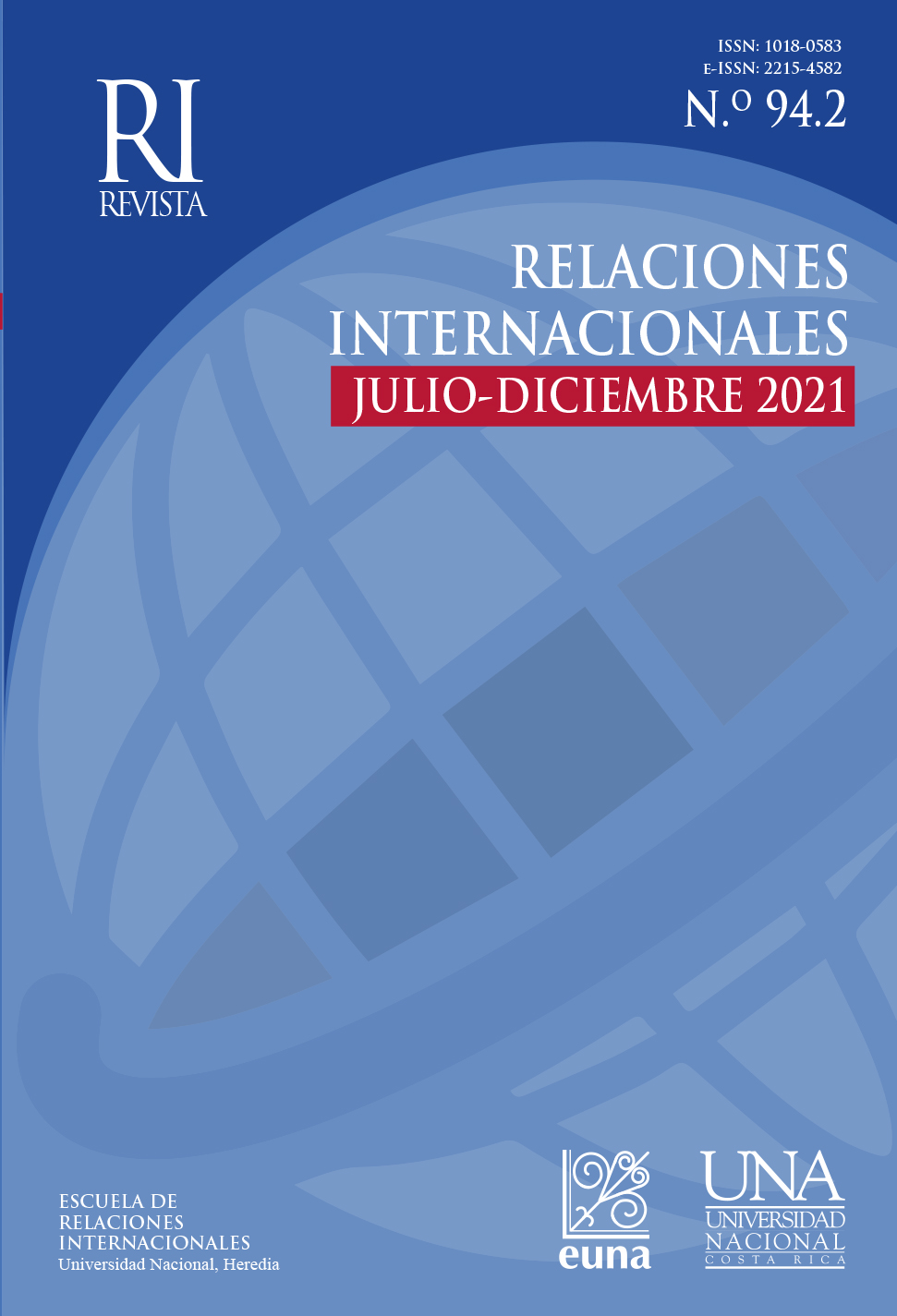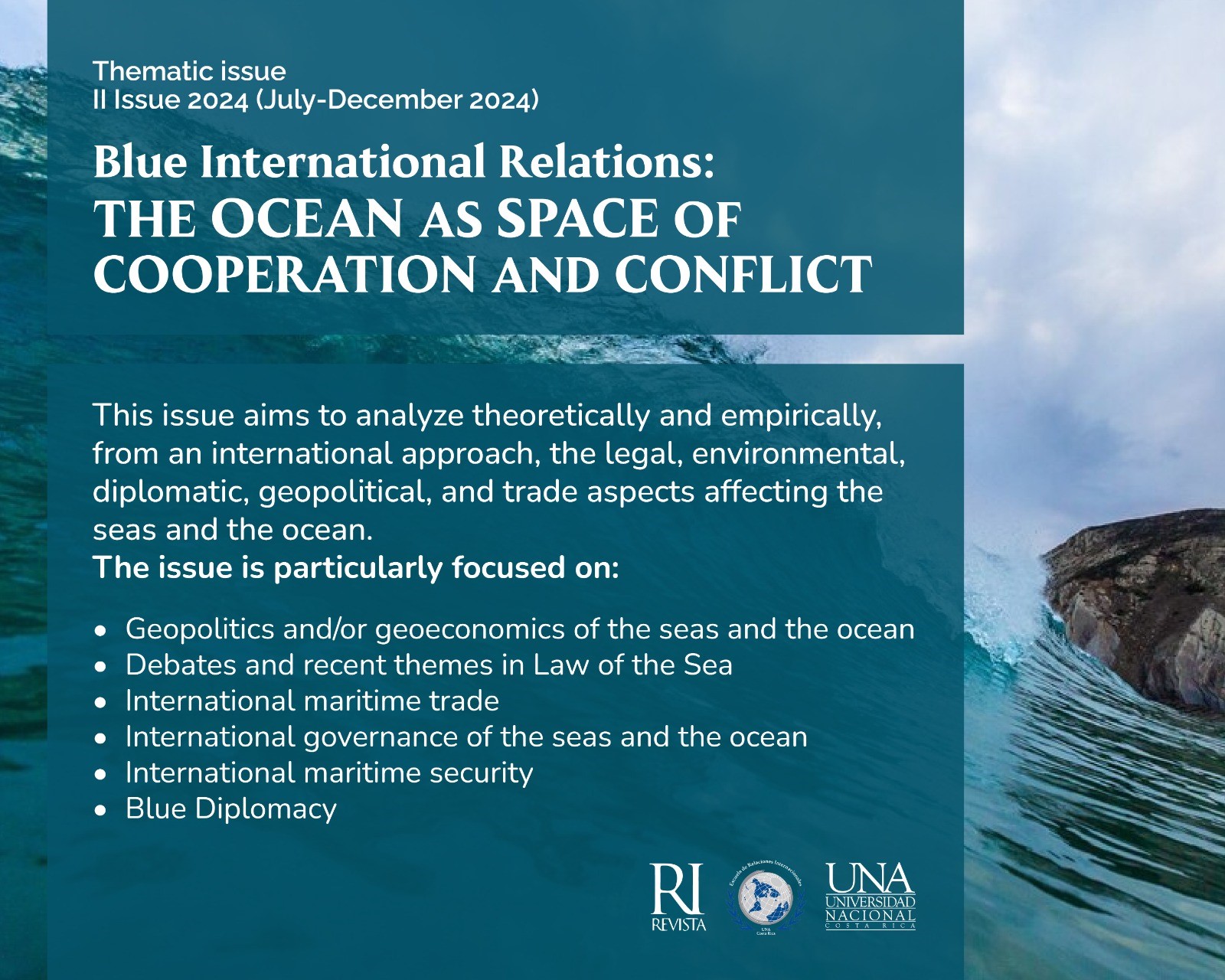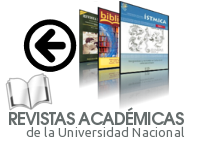Fragmentation and bifurcation in the post COVID-19 International System: Implications for Central America
DOI:
https://doi.org/10.15359/ri.94-2.6Keywords:
Bifurcation, Central America, China, fragmentation, international system, United StatesAbstract
The contemporary era is characterized by two attributes that determine it: fragmentation in the management of the international system and bifurcation of alternatives represented by key actors of the system. These phenomena explain the tensions between China and the United States, the absence of a global system administrator (hegemonic actor), and the emergence of intermediate powers that have gained greater visibility in the context of the pandemic. This new systematic context is presented in the Central American region as a new strategic the challenge, since it has acquired greater preponderance as a zone of influence, but at the same time there is a growing fragmentation within its countries, the potential for cooperation and conflict creates important opportunities but also threats that must be addressed in a timely manner to avoid past mistakes.
References
Apuzzo, M. K., David. (2020, 14 April 2020). Covid-19 Changed How the World Does Science, Together. The New York Times. Retrieved from https://www. nytimes.com/2020/04/01/world/europe/coronavirus-science-research-cooperation.html
Brands, H. (2020). China’s global influence operation goes way beyond the WHO. The Japan Times. Retrieved from https://www.japantimes.co.jp/opinion/2020/04/01/commentary/world-commentary/chinas-global-influence-operation-goes-way-beyond/
Brands, H. L. G., John. (2021). The New Cold War. Foreign affairs, November/December. Retrieved from https://www.foreignaffairs.com/articles/united-states/2021-10-19/new-cold-war
Dupont, A. (2020). New Cold War: de-risking the US-China conflict. Retrieved from https://www.hinrichfoundation.com
Fukuyama, F. (1989). The End of History? The National Interest(16), 3-18. Retrieved from www.jstor.org/stable/24027184
Haenle, P. T., Lucas. (2020). U. S.-China Cooperation on Coronavirus Hampered by Propaganda War. Retrieved from https://carnegieendowment.
org/2020/03/24/u.s.-china-cooperation-on-coronavirus-hampered-by-propaganda-war-pub-81347
Keohane, R. O. (1989). International institutions and state power: Essays in international relations theory: Westview Pr.
Kissinger, H. (2014). World order: Penguin Books.
Levitsky, S., & Ziblatt, D. (2018). How democracies die: Broadway Books.
Mounk, Y. (2018). The people vs. democracy: Harvard University Press.
Murillo Zamora, C. (2018). Reconceptualización de Relaciones Internacionales en un mundo transformado. Escuela de Relaciones Internacionales, Universidad Nacional. https://repositorio.una.ac.cr/bitstream/handle/11056/14580/publication-ilovepdf-compressed.pdf?sequence=1&isAllowed=y
Norris, P., & Inglehart, R. (2019). Cultural backlash: Trump, Brexit, and authoritarian populism: Cambridge University Press.
Nye Jr., J. S. (2009). Get smart: Combining hard and soft power. Foreign affairs,160-163.
Nye, J. S., & Keohane, R. O. (1971). Transnational Relations and World Politics: An Introduction. International Organization, 25(3), 329-349. doi:10.1017/S0020818300026187
Rosenau, J. (2007). Globalization and governance: bleak prospects for sustainability. Internationale Politik und Gesellschaft.
The Economist. (2020a, May 9th). The new scold war: The pandemic is driving America and China further apart. The Economist. Retrieved from https://www.economist.com
The Economist. (2020b, June 18th). The new world disorder. The Economist. Retrieved from https://www.economist.com/leaders/2020/06/18/the-new-world-disorder
Unit, T. E. I. (2021). Democracy Index 2020. In sickness and in health? Retrieved from www.ieu.com
Waltz, K. N. (1988). Teoría de la Política Internacional: Grupo Editor Latinoamericano.
Wintour, P. (2020, 22 June 2020). US v China: is this the start of a new cold war? The Guardian. Retrieved from https://www.theguardian.com/world/2020/jun/22/us-v-china-is-this-the-start-of-a-new-cold-war
Published
How to Cite
Issue
Section
License

Revista de Relaciones Internacionales por Universidad Nacional de Costa Rica está bajo una Licencia Creative Commons Atribución-NoComercial-SinDerivar 4.0 Internacional








1.png)







3.png)
